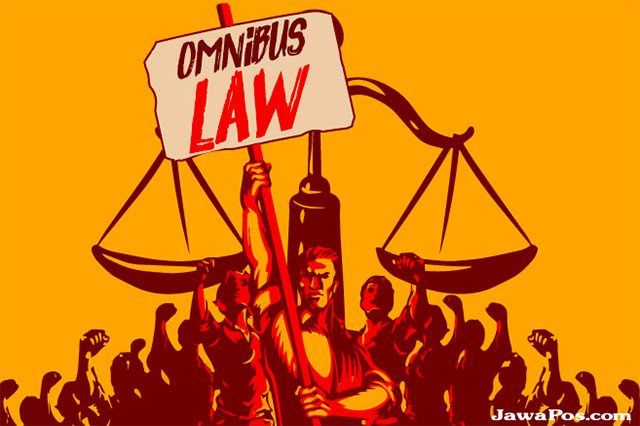Trimbing Bureaucracy With Omnibus Law
Since officially serving as President and Vice President, Joko Widodo and Ma’ruf Amin have scheduled five visions, one of which is regulatory regulation. In this section the President mentioned a lot about the importance of the government to cut licensing in the field of investment which has been considered problematic and tends to be convoluted (overregulated) so that it results in impeded investment performance in Indonesia. Efforts to remove a number of regulatory obstacles through structuring and simplification with the omnibus law method, which combines several rules with different regulatory substance, become a large regulation that functions as a legal umbrella.
Omnibus Law is a regulation compiled by people who have knowledge so that it is based on references and in-depth studies. This omnibus law aims at three things namely regarding taxation laws, employment creation and the empowerment of MSMEs. For taxation, it is expected to be able to increase investment, the territorial system for domestic income places tax legislation facilities, creates business climate justice and encourages the need to pay taxes. On the other hand, the Omnibus Law is able to create jobs, simplify licensing, protect MSMEs, handle sanctions, procure land, facilitate government projects and so on. Changes occur due to the pros and cons of the previous policy, therefore the Omnibus Law was made to be able to increase economic growth needed by the process and commitment to regulation and pay attention to its benefit for the community. Economic growth can be seen with the presence of clear indicators, so it is necessary to study these indicators of economic growth in the process of formulating this omnibus law. Today’s pros and cons are also caused by information related to indicators of achieving economic growth that has not been widely conveyed.
The importance of reconciliation that is currently being discussed by the government is merely to fix the overlapping bureaucracy’s performance, therefore the Omnibus Law simplification concept is expected to facilitate all matters of public service. Omnibuslaw is a good effort to help accelerate Indonesia’s economic growth in order to catch up, but it also requires a lot of involvement from the strata of society. This is a one-step foundation for the progress of the nation by making it easier for all investment and licensing processes in Indonesia.
